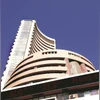Indian equity benchmarks ended the first week in the new year with gains despite the correction on Friday. The benchmark indices fell amid selling by foreign portfolio investors (FPIs). The Sensex ended the session at 79,223, a decline of 721 points, or 0.9 per cent. The Nifty, on the other hand, ended the session at 24,005, a decline of 184 points, or 0.8 per cent.
During the week, the Sensex gained 0.7 per cent, and the Nifty 0.8 per cent, their second consecutive week of gains. The total market capitalisation of BSE-listed firms declined by Rs 70,000 crore and was trading at Rs 450 trillion.
On Friday, FPIs were net sellers of Indian equities of Rs 4,227 crore, and domestic institutions bought shares worth Rs 821 crore. HDFC Bank and ICICI Bank contributed to most of the Sensex losses, and they declined 2.5 per cent and 1.9 per cent, respectively. FPIs hold a significant stake in both HDFC Bank and ICICI Bank.
"The market concluded the week with a pessimistic note as a sell-on-rally sentiment prevails due to a strong US dollar, high valuation, and investors' shift towards a multi-asset strategy. The auto sector outperformed other indices, driven by robust December sales that defied the usual subdued demand. Persistent concerns over FII (foreign institutional investor) outflows, a depreciating INR, along with signs of improving core sector print, and reduced expectations for rate cuts in 2025 contributed to the mixed investor sentiments,” said Vinod Nair, head of research of Geojit Financial Services.
Indian indices began the year on a strong footing and posted gains in the first two sessions of 2025. On Thursday, the indices gained nearly 2 per cent, their best single-day increase in six weeks, amid a surge in technology and auto heavyweights.
Market experts said corporate results for the quarter ended in December and the Union Budget in February will determine the market trajectory going forward.
Also Read
"We note three headwinds for the Indian market in the short term: expensive valuations across caps and sectors barring financials, even as headline market valuation has come off; earnings cuts; and continued sluggish consumption demand," said Kotak Institutional Equities in a recent note.
The policies of the US administration after Donald Trump assumes charge and rising geopolitical conflicts are also likely to impact the markets. Analysts said that although India is more immune to these issues, global cues will affect investor sentiment.
“This pullback appears to be a normal pause following the recent recovery and could persist until the Nifty decisively crosses the next resistance at 24,250. We continue to recommend focusing on stock-specific opportunities in line with sectoral trends. In the near term, sectors like FMCG, auto, and energy are expected to outperform, so positions should be aligned accordingly,” said Ajit Mishra, SVP of research of Religare Broking.
Market breadth was strong, with 2,032 stocks advancing and 1,965 declining. Close to two-thirds of Sensex stocks declined. Zomato, which declined 4.3 per cent, was the worst-performing Sensex stock.
)